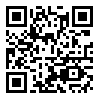BibTeX | RIS | EndNote | Medlars | ProCite | Reference Manager | RefWorks
Send citation to:
URL: http://rbmb.net/article-1-110-en.html

 , Sara Pouriamanesh
, Sara Pouriamanesh 
 , Mona Amin-beidokhti
, Mona Amin-beidokhti 
 , Amir Rezagholizadeh
, Amir Rezagholizadeh 
 , Reza Mirfakhraie *
, Reza Mirfakhraie * 

Background: The PIWI-interacting RNA (piRNA) pathway has an essential role in transposon silencing, meiosis progression, spermatogenesis, and germline maintenance. HIWI genes are critical for piRNA biogenesis and function. Therefore, polymorphisms in HIWI genes contribute to spermatogenesis defects and can be considered as risk factors for male infertility. The aim of the present study was to investigate the association between the HIWI2 gene rs508485 polymorphism and non-obstructive azoospermia.
Methods: A total of 121 Iranian men with idiopathic azoospermia and 100 fertile controls were genotyped for HIWI2 rs508485 (T>C) polymorphism using Tetra-ARMS PCR. The presence of eight sequence-tagged site (STS) markers from the Y chromosome AZF region was also investigated by Multiplex PCR (M-PCR).
Results: Thirteen (10.74%) patients showed Y chromosome microdeletions and therefore were excluded from the study. rs508485 in the 3’UTR of HIWI2 was associated with increased risk of azoospermia in our studied population with a P-value of 0.035 and odds ratio of 2.00 (CI 95%: 1.04-3.86).
Conclusions: We provide evidence for an association between genetic variation in the HIWI2 gene involved in the piRNA pathway and idiopathic non-obstructive azoospermia in Iranian patients. Therefore, piRNA pathway gene variants can be considered as risk factors for male infertility.
Received: 2016/05/10 | Accepted: 2016/05/22 | Published: 2017/04/30
| Rights and permissions | |
 |
This work is licensed under a Creative Commons Attribution-NonCommercial 4.0 International License. |


